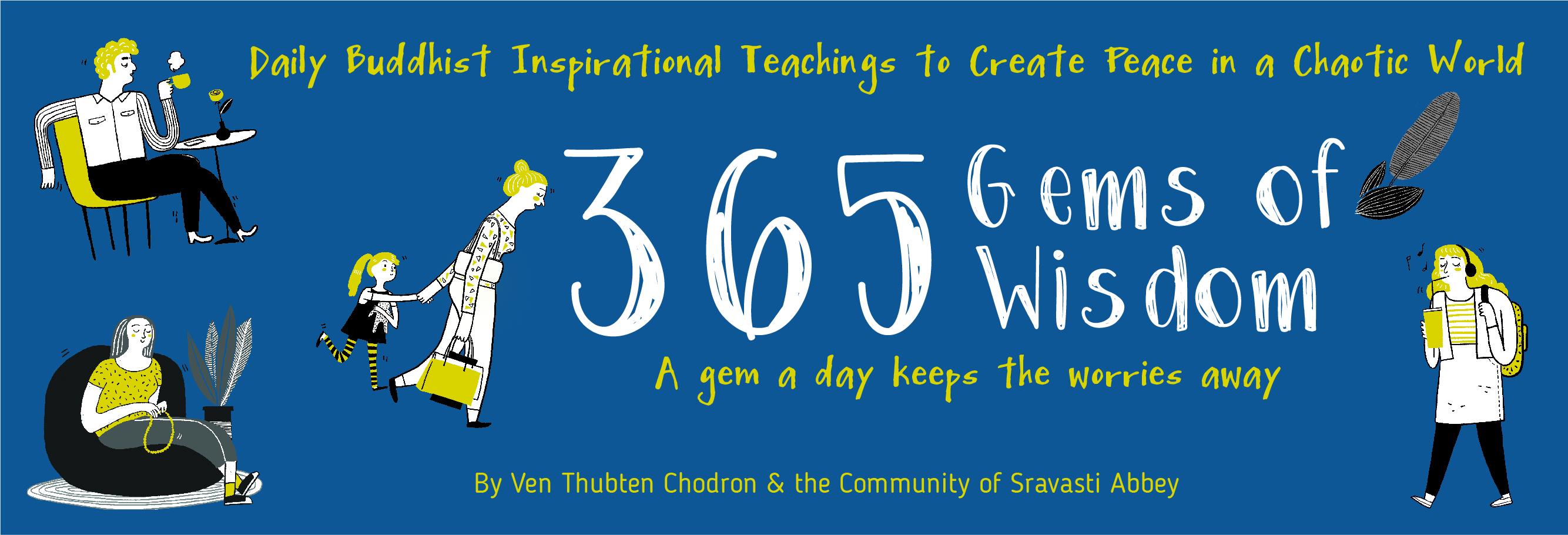January 22 : A Balanced Attitude
Loved ones who have long kept company will part. Wealth created with difficulty will be left behind. Consciousness, the guest, will leave the guesthouse of the body. Let go of this life. This is the practice of Bodhisattvas.
Thinking about impermanence and death challenges us to think about the meaning of our life and its outcome. Nowadays, it is as if we have an obligation to keep ourselves busy all the time, but what is the point of getting so agitated over our cell phones, computers, and electronic devices if ultimately, we are all going to die? Our body and consciousness, which we label the “I” or “person”, will split at the time of death. The label “I” continues with the consciousness, but not our ego identity of this life that is based on our present nationality, ethnic group, sexual orientation, gender, profession, political party, and so on. We might think that being loved and appreciated by the people we are closest to is what makes our life meaningful, but no matter how much we love someone, we will have to separate when death comes. We will be born in one place in our future life while the people we are close to will be born in another.
The Buddha said very clearly, and it is certainly our experience, that whatever comes together has to separate. We work very hard to get money and possessions that solidify our sense of who we are. But we cannot take our wealth with us when we die, and it has the potential to become an object of dispute for our relatives. Only the karmic imprints or seeds in our minds go on to the next life. Our present actions of body, speech, and mind leave latencies and predispositions on our consciousness which influence whom we are born as next, where we are born, our habitual tendencies, and our life experiences. It is not that things are predetermined, but they are conditioned by actions we created in the past. We are all creating the causes right now for what we are going to experience in the future. Given this situation, the best way to use our current body, wealth, and relationships is to create virtue by practising generosity, ethical conduct, patience, joyous effort, concentration, and wisdom. We can use sense pleasures as objects of generosity instead of attachment, see 34 | January our loved ones as objects to practise equanimity with, and people we do not like can be used as objects of patience.
We still have all these things in our life, but we can learn to employ them differently so that our mind reacts in a constructive and wholesome manner. As we start to develop the view of future lives as more important, we will experience more satisfaction and happiness in this life since clinging only brings dissatisfaction and fear of loss. We do not need to go to the other extreme of shunning people we are attached to, giving away all our wealth, or depriving our bodies, since none of these benefit sentient beings and may cause more problems. We just need to keep a balanced attitude towards these things without clinging.
“365 Gems of Wisdom” First Volume (January — March) e-book is out now!

